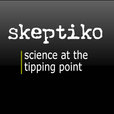
Summary: Father Rod Walton author of, Bereavement Rescue with Near Death Experience, discusses the evidence for and uses of NDE science. Join Skeptiko host Alex Tsakiris for an interview discussing the use of near death experience science in dealing with the loss of a loved one. During the interview Father Rod Walton explains why science is important to his work, “I think people really want evidence. Most people, once you give them evidence, it changes them. I often use Ken Ring’s book, Mindsight, about people who have been born blind. They don’t even see in there dreams… they only can smell, taste and touch… but when these people have a near death experience they do see for the first time. When the bereaved realize that this doesn’t add up, it affects them. It makes them willing to listen. They’re getting hope based on facts rather than just perhaps and ifs and pie in the sky.” Father Walton also discusses the Christian churches unwillingness to accept this new science, “Many Christian communities have great tunnel vision. They’re only looking in a straight line. They don’t look left; they don’t look right. I don’t think they’re searching. I don’t think they’re seeking. I think they’re just following tradition and dogma.” Father Rod Walton’s Bereavement Rescue Play it: Download MP3 (18:00 min.) Read it: Welcome to Skeptiko, where we explore controversial science with leading researchers, thinkers, and their critics. I’m your host, Alex Tsakiris. This show, Skeptiko, has always been about following the data. That’s kind of been our tagline. Just follow the data and you’ll find your way through these controversial, unsettling, breakthroughs in science and you’ll come to a new understanding about who you really are. That’s the theme of this show, if you will. But today’s interview with Rod Walton got me thinking about what it really means to follow the data. In particular, the data behind near-death experience science, a topic we’ve covered a lot on this show. As you know, we’ve spoken with some of the world’s leading researchers and we’ve spoken with some of the leading critics, as well. I guess when I follow that data, at the end of the day I don’t see how a reasonable person can look at that body of data and just say, “Gee, it’s all delusion. It’s all fraud. It’s all misreporting.” I mean, blind people seeing, patients reporting with crystal clear consciousness what happened to them while they were clinically dead and doctors and nurses confirming that. There are hundreds and hundreds of cases like that, and I think if you take the position that “Hey, that isn’t really happening,” or it’s somehow fraud or delusion, well then you’re not even following the data and the rest of this probably won’t mean much to you. What’s interesting to me is what if you do follow the data to that point? What if you’ve read some of the research? Read some of the books, the accounts, and you’ve gotten to the point where you say, “Wow, you know it sure does seem like there’s something there. There is something to this near-death experience. It is happening. It is medically unexplainable. It does seem to suggest that consciousness survives death.” What about then? Are you following the data? Or does following the data in this case, in the case of talking about consciousness surviving death, you not really dying when you think you die, does that kind of data and following of that kind of data require something more? Well, it did and it does for today’s guest, Father Rod Walton. As you’ll hear in this interview, Rod was familiar with the near-death experience research, but it wasn’t until he hit a bump in the road in his life-in this case, the loss of a lov[...]
